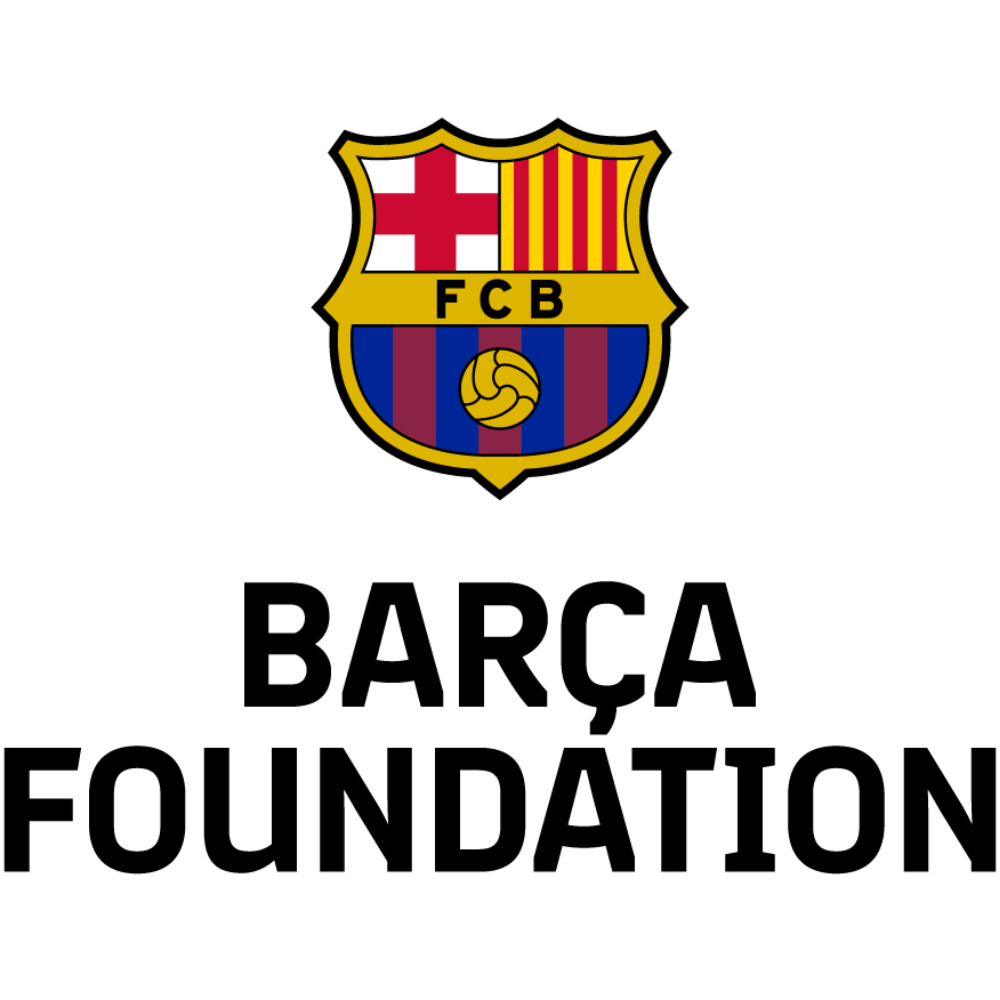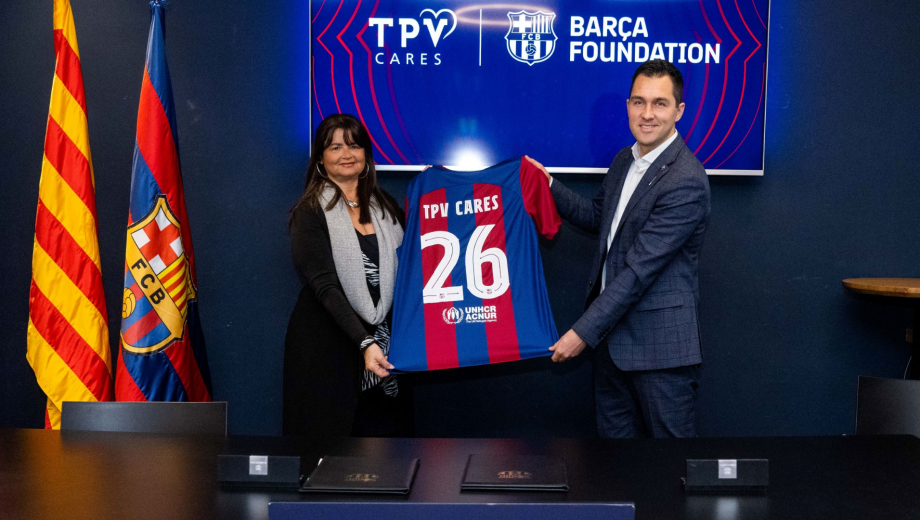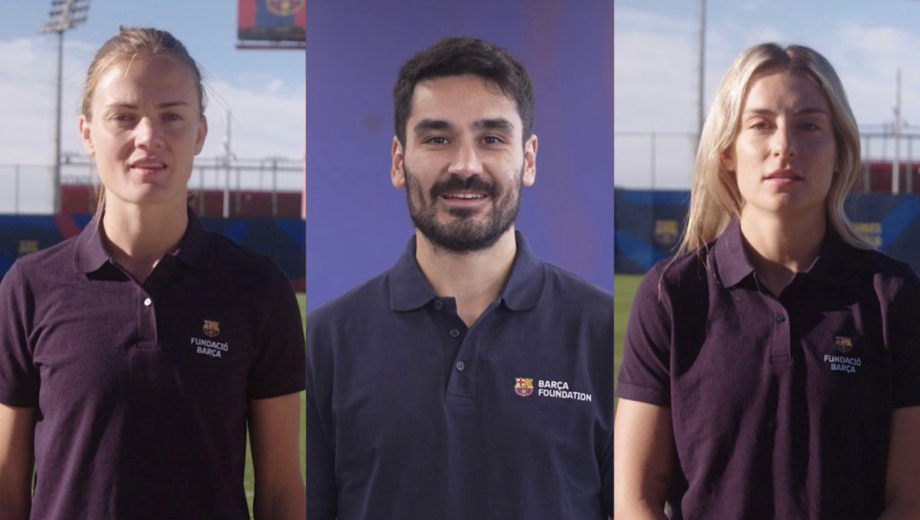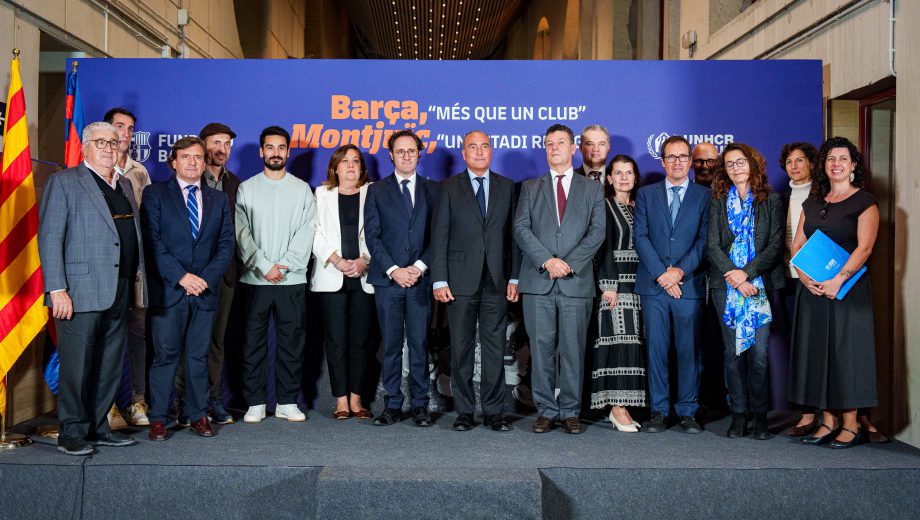CSR in football and the Sustainable Development Goals
On Monday, we have published an interview with Karin Heri, Head of Sustainability at Malmö FF, focusing on their contribution to the Sustainable Development Goals (SDGs). We would like to highlight how other EFDN members or EFDN programmes are implementing the SDGs in their work.
Barça Foundation
At the 13th EFDN Conference, Aisha Al-Said Albella, Head of Partnerships, Innovation and Knowledge at Barça Foundation, held a presentation on Sport for Development and the SDGs: A tool to contribute to the Sustainable Agenda. The Barça Foundation is the entity through which FC Barcelona conveys its corporate social responsibility. Since its founding in 1994, the Foundation has helped people take part in the many social, cultural and sporting activities that the club has carried out, which is a reflection of an advanced society. In particular, the Foundation’s specific framework of action is Sport for Development. All work revolves around the idea of using Sport as a tool to prevent violence, improve the social inclusion of vulnerable groups and improve the access to education.

At the 14th EFDN Conference, Maria Vallés, General Manager of Barça Foundation presented on their work relating to Sustainable Development Goals (SDGs) at the virtual conference. You can download her presentation here and find the resource on our website.
Brentford FC
At the 14th EFDN Conference, Brentford FC presented their new commercial and partnerships strategy that aims to maximise current and new corporate partnerships and other collaborations. By joining forces with different departments and aligning resources, better results are able to be obtained. Their strategy is aligned with the UN Sustainable Development Goals which demonstrates their willingness to show the local impact at a global level.

Athletic Club Foundation
To honour World Environment Day, the Athletic Club Foundation has launched a new competition on its website that poses a new challenge every month. The competition is based on the UN Sustainable Development Goals, around the themes of sustainability, social welfare, gender equality and culture. Through this initiative, participants will be able to raise awareness of the small but important role we all must play individually, in preserving and improving our environment. To reward the social commitment of participants, the foundation will be presenting the winner of the competition with an official Athletic Club shirt. In addition, the supporters of the Foundation who participate will also be eligible for a special surprise gift.

The challenges set will always be based on a specific topic, linked to the Sustainable Development Goals (SDGs). The Athletic Club Foundation is committed to the Sustainable Development Goals set by the UN, in order to eradicate poverty, protect the planet and ensure prosperity for everyone. The importance of local, responsible trade was the first theme chosen to launch the competition. On the competition page, you will also be able to find out more about the proposed theme and access a dedicated website. Read more here.
Shakhtar Social
The Annual Report 2018/2019 covers Shakhtar Social’s activities during the 2018/19 season. The publication is structured to reflect all significant projects chronologically. Shakhtar Social is a foundation established by FC Shakhtar with a purpose to implement the club’s social responsibility policy. The foundation’s major activities are centred around health, education, gender equality, social inclusion and charitable work.
Shakhtar Social operates within the framework of three of the UN’s sustainable development goals: ensure healthy lives and promote well-being for all at all ages; ensure inclusive and equitable quality education and promote lifelong learning opportunities for all; achieve gender equality and empower all women and girls. Read more in their report.

Randers FC
The Danish Club is very active in including the SDG’s in its projects. More information about Randers FC‘s their involvement in four SDGs can be found below.
SDG 3 (Ensure healthy lives and promote well-being for all at all ages) is reflected in many projects of Randers FC. Not only projects in cooperation with EFDN, such as ‘Scoring for Health’ with a focus on nutrition and physical activities amongst school children, but also projects activating and supporting local veterans from the Afghan, Iraq and Balkan wars by conducting various activities for the veterans, their families and relatives, projects helping mentally challenged adults a chance to leave their apartments and visit concert halls, libraries, museums etc in order to expand their network and socially included with the project ‘Cultural Vitamins’, inviting challenged families for a free Holiday Camp, assisting overweight adults in their search for a job with ‘Healthy Job’ and enabling families from socially challenged areas to be an active part of grassroot football by paying membership fares, football boots, etc.
SDG 8: Promote sustained, inclusive and sustainable economic growth, full and productive employment and decent work for all is used in projects such as ‘Job Tours’ which engages young people with a mental diagnose to be physically active through cycling, ‘Talents of tomorrow’, which helps youngsters from socially challenged neighbourhoods to be involved in paid after school jobs, IGU, which helps refugees get included through paid internships and MiniTrainees, which enables youngsters with mental handicaps to get familiar with working routines at the club.
SDG 12: Ensure sustainable consumption and production pattern is referred to by starting garbage sorting at the club’s stadium (not yet activated).
SDG 17: Strengthen the means of implementation and revitalize the global partnership for sustainable development can be seen in the long lasting Partnership agreement with the local authorities and relations to EFDN & Erasmus + programmes
All SDGs: The club uses their email signature to raise awareness and motivate fans to ‘score for the global goals’.

Resources
The Commonwealth Secretariat has published a lot of information on the SDGs in connection to sport, more specifically about measuring the contribution of sport to the Sustainable Development Goals. According to them, the potential for sport to make positive contribution to society is well recognised. This potential has been acknowledged in the Commonwealth’s 2030 Agenda for Sustainable Development that recognises sport as an important enabler to achieving the Sustainable Development Goals (SDGs). The work of the Commonwealth aims to help countries and sporting bodies to assess if the positive contribution of sport to society is being realised and better target future strategy and investment. It will also help future strategy and investment in sport to be evidence based and data driven. The need to improve how countries and sporting bodies plan, monitor and evaluate the contribution sport makes to society has been identified as a priority by Commonwealth countries and the wider international community, including through the global Kazan Action Plan, which sets out agreed priorities for national sport policies in response to the SDGs. Find the analysis on Sport for Development and Peace and the 2030 Agends for Sustainable Development here.
EFDN and the SDGs
EFDN is convinced that sport, including football has proven to be a cost-effective and flexible tool in promoting peace and development objectives. Our work shows us on a daily basis that football has the power to change lives. We are convinced that football is a powerful tool with the potential to tackle challenges entailed in each of the 17 SDG’s. Together with its members and partners, EFDN is aiming at working towards new milestones in CSR in football. Click here to read more about each goal and how sport can contribute to achieving them. Our Pan-European programmes and networking activities are currently contributing to 10 Sustainable Development Goals (SDGs).
Scoring for Health

Barça Foundation – Against Bullying


FC Barcelona provides audiovisual technology for vulnerable children with their new partner



